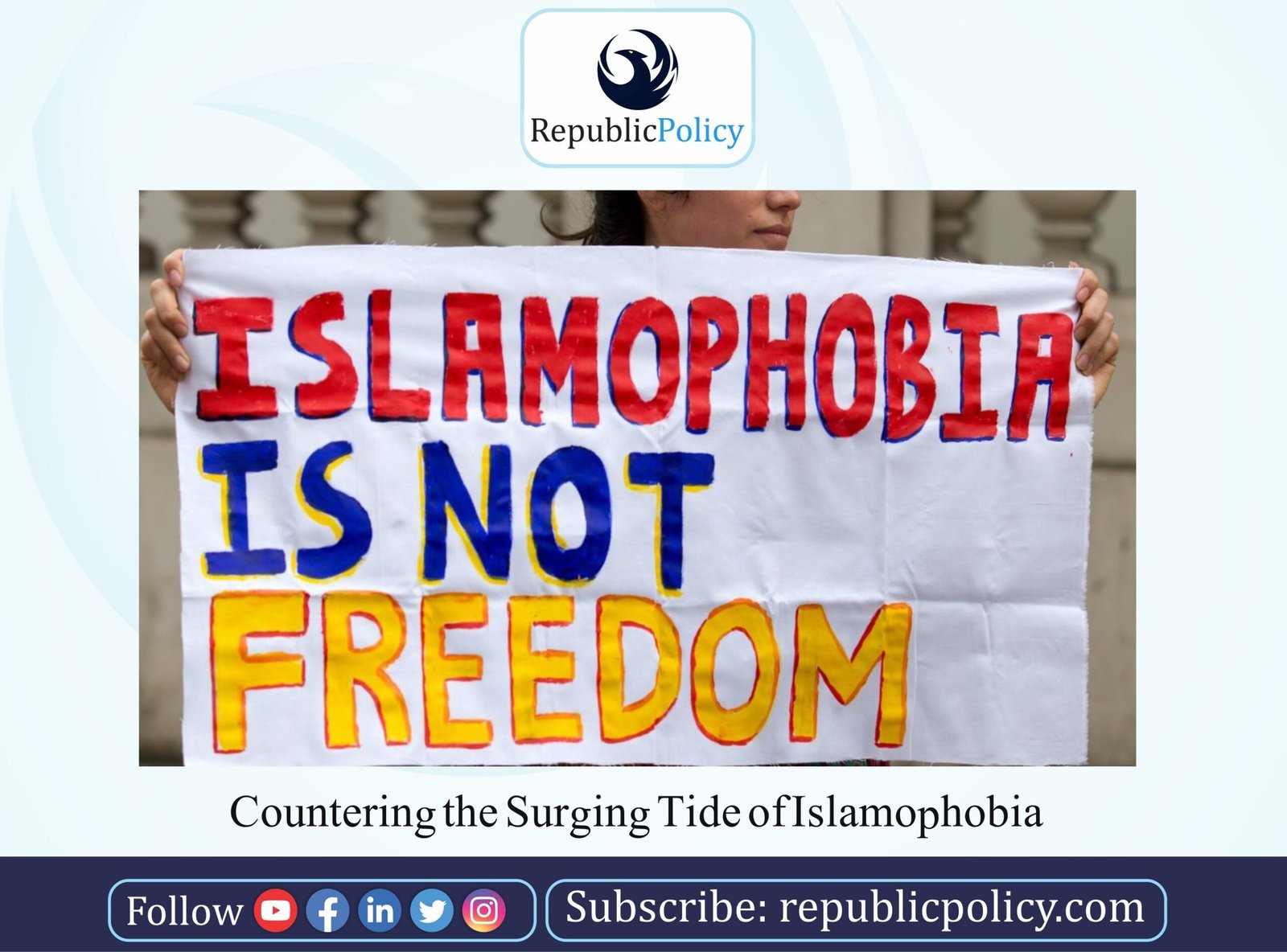Arshad Mahmood Awan
In a disturbing reflection of the times, the rise of Zohran Mamdani — an immigrant Muslim of Indian descent and the Democratic nominee for New York City’s mayorship — has become a lightning rod for unfiltered Islamophobia, racism, and far-right hysteria. In what should have been a moment of celebration for inclusive democracy, Mr Mamdani’s primary victory has instead triggered an alarming torrent of bigotry across mainstream American media, far-right platforms, and even from within his own political party. His real crime, it seems, is his refusal to toe the Zionist line, his bold defense of Palestinian rights, and the mere fact of his Muslim identity in an era where Islam is still viewed through a lens of suspicion and fear in many quarters of American life.
Zohran Mamdani’s campaign resonated with everyday New Yorkers. His promise to address the soaring cost of living, challenge real estate monopolies, and make the city more accessible and equitable was a breath of fresh air in a political landscape often dominated by corporate interests. But his rise from state legislator to serious mayoral contender has deeply unsettled a status quo that prefers its progressives to be either silent or symbolic. The moment he became a real threat to the establishment—especially one so openly pro-Palestinian—he became a target.
Within hours of his primary win, the backlash began in earnest. Former President Donald Trump dismissed him as a “100% Communist Lunatic” and laced his public statements with Islamophobic undertones. Right-wing figure Laura Loomer, known for her dangerous conspiracy theories, went so far as to suggest that Mr Mamdani’s election would “lead to another 9/11.” And the attacks weren’t limited to the usual suspects. Democrat Laura Gillen, instead of supporting a fellow party nominee, declared Mamdani’s campaign “built on lies, fantasy, and hatred.” The message was clear: certain voices, especially those challenging Zionist narratives and defending Muslim identity, are not welcome — even in the party that prides itself on diversity and inclusion.
Social media, predictably, became a cesspool of racist and Islamophobic abuse. Doctored images of the Statue of Liberty clad in a burqa, captions warning of a “Sharia takeover” of New York, and slurs branding Mamdani as a “jihadist” flooded digital platforms. Most alarmingly, the New York Police Department confirmed that Mamdani has received multiple death threats. While investigations are ongoing, the response from mainstream political figures and media outlets has been largely muted. The silence is deafening, and it reveals a dangerous complacency in the face of rising hate.
What’s happening with Zohran Mamdani is not just about one candidate — it is a mirror to America’s evolving identity crisis. For a nation that claims to be a beacon of liberty, justice, and pluralism, the treatment of a Muslim immigrant politician reveals how thin the veneer of tolerance really is. America is facing an uncomfortable question: can it truly claim to be a modern democracy when its most marginalized citizens continue to be treated as suspects, even when participating in the democratic process?
Please, subscribe to the YouTube channel of republicpolicy.com for quality content.
The Mamdani case also lays bare the deep entrenchment of Islamophobia in American political discourse. Criticizing Zionist policies — especially those involving the brutal treatment of Palestinians — is immediately conflated with antisemitism, even when such critiques are rooted in international human rights law. Mamdani has made clear distinctions between violent Zionism and Judaism, advocating for Palestinian self-determination while rejecting hate in all its forms. But nuance is a casualty in today’s polarized political climate. His views have been deliberately misrepresented to serve a narrative that paints Muslims as inherently dangerous, irrational, and anti-American.
This is not a new phenomenon. Muslim public figures in the West, from Ilhan Omar to Rashida Tlaib, have long been targets of similar hate campaigns. But what makes Mamdani’s situation especially volatile is that he has achieved a position with executive power at a citywide level in one of the world’s most visible metropolises. For the far-right and segments of the political establishment, this is intolerable.
What makes the current wave of hate even more disconcerting is its bipartisan nature. While Republicans may lead the charge with overt bigotry, Democrats are guilty of silent complicity or even active participation. The party that claims to stand against bigotry must ask itself why it fails to defend its own when they become targets of hate, especially when those individuals challenge entrenched power structures. If standing with the oppressed is only acceptable when politically convenient, then moral leadership becomes nothing more than political theatre.
As global Islamophobia rises—exacerbated by wars in Gaza and broader Middle Eastern instability—the West must decide whether it will continue down this path of manufactured fear or begin to confront its own contradictions. The targeting of Zohran Mamdani is not just a political attack; it is a moral indictment of a system that preaches equality while punishing those who dare to embody it.
The United States has long declared itself a bastion of freedom. But freedom without dignity, without the right to dissent, and without protection from hate, is hollow. The campaign against Mamdani is not just un-American; it is anti-human. If America wishes to retain even a semblance of its moral authority on the global stage, it must act — not just in words, but in defense of every Zohran Mamdani who dares to believe in a better future.
















